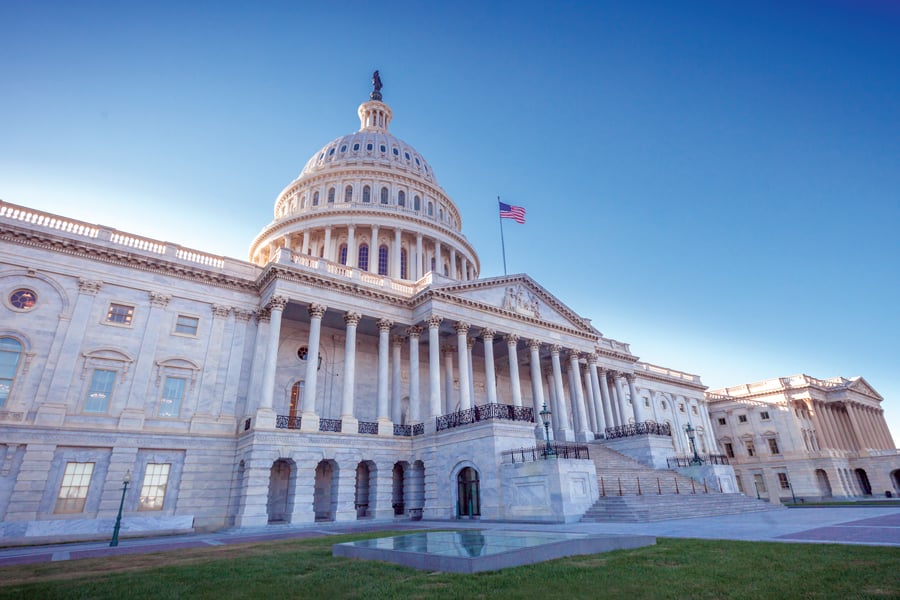

The Senate HELP Committee convened today for the first time since 2013 to discuss retirement security, with themes of emergency savings, student loan debt, the wealth gap and expanding plan coverage dominating much of the discussion.
Over the past several years, Congress has made some headway on retirement security, notably with the passage of the SECURE Act and a second iteration of the bill recently being advanced by the House Ways and Means Committee. That legislation, dubbed SECURE 2.0, has provisions to expand access to workplace retirement plans and to hike the required minimum distribution age to 75 from 72 over 10 years.
However, more must be done to meaningfully boost retirement savings, guests before the Senate Committee on Health, Employment, Labor and Pensions testified today.
That could include allowing employers to default workers into emergency savings accounts and student-loan debt management services, as well as automatically porting 401(k) account assets from one plan to another when an employee changes jobs. It might also mean passing legislation to discourage or prevent workers from prematurely cashing out their 401(k) balances after leaving an employer.
“Each year approximately 40% of terminated participants elect to prematurely cash out of their defined contribution plan -- and these are mainly younger workers with small balances. And the cost is high,” Lori Lucas, CEO of the Employee Benefit Research Institute, said in her testimony. In 2015, for example, early cashouts from 401(k)s total an estimated $92.4 billion, she said.
A system in which small business workers are enrolled in open multiple-employer plans with automatic account portability between employers could reduce the money flowing out early from 401(k)s by an estimated 26%, she said.
Sen. Richard Burr, R-N.C. and ranking member on the committee, pointed to defined-contribution plans as the most reliable vehicle workers have in saving for retirement.
“Individual retirement plans haven’t gotten much attention lately, in part because they work,” Burr said. “Americans in DC plans pick up a piece of paper and see two things: their name and their account balance. It’s their money … No politician can steal your 401(k) or IRA, at least not yet.”
However, Burr did acknowledge the lack of access to employer-sponsored plans.
“The system works great. [But] the system doesn’t work great when you don’t or can’t participate,” he said.
Solving that issue could be a nationwide coverage mandate that overrides state requirements, said Shai Akabas, director of the Economic Policy Project at the Bipartisan Policy Center.
“Closing the coverage gap warrants an all-of-the-above approach to reach different segments of the market. With state plans, [pooled employer plans] and innovative providers using turnkey approaches to reach small businesses all progressing, each can play a role,” he said. “But while these developments are steps in the right direction, much work remains.”
There should be more focus on workplace emergency savings, he noted.
A design that would benefit from behavioral economics is a sidecar emergency account model, which would default workers into a 401(k) and short-term savings account simultaneously, Lucas said. People would tap into the emergency accounts as needed and avoid early cash-outs of their larger 401(k)s, she noted.
Further, addressing the retirement savings crisis requires policies aimed at demographics that have faced institutional discrimination and thus lower wages and wealth, guests testified.
Black families, for example, have an average of $25,000 saved for retirement, compared with $160,000 among white families, said Deva Kyle, counsel at Bredhoff & Kaiser. Class, gender and racial disparities in wealth affect retirement security, Kyle said.
“The retirement crisis in this country is the flip side of the wage crisis. When we think about providing more retirement security to workers it is essential to ensure fair pay, so people can afford to save,” Kyle said.

Eliseo Prisno, a former Merrill advisor, allegedly collected unapproved fees from Filipino clients by secretly accessing their accounts at two separate brokerages.

The Harford, Connecticut-based RIA is expanding into a new market in the mid-Atlantic region while crossing another billion-dollar milestone.

The Wall Street giant's global wealth head says affluent clients are shifting away from America amid growing fallout from President Donald Trump's hardline politics.

Chief economists, advisors, and chief investment officers share their reactions to the June US employment report.

"This shouldn’t be hard to ban, but neither party will do it. So offensive to the people they serve," RIA titan Peter Mallouk said in a post that referenced Nancy Pelosi's reported stock gains.
Orion's Tom Wilson on delivering coordinated, high-touch service in a world where returns alone no longer set you apart.
Barely a decade old, registered index-linked annuities have quickly surged in popularity, thanks to their unique blend of protection and growth potential—an appealing option for investors looking to chart a steadier course through today's choppy market waters, says Myles Lambert, Brighthouse Financial.
